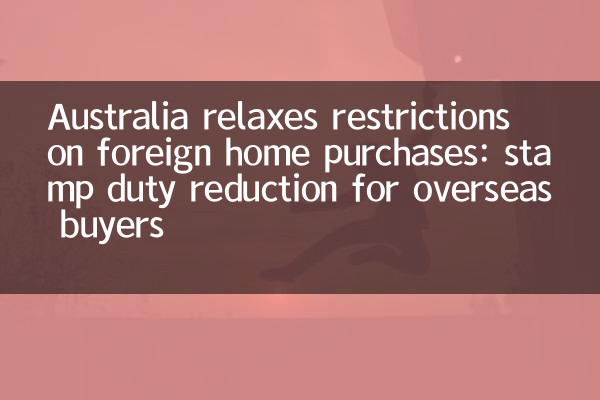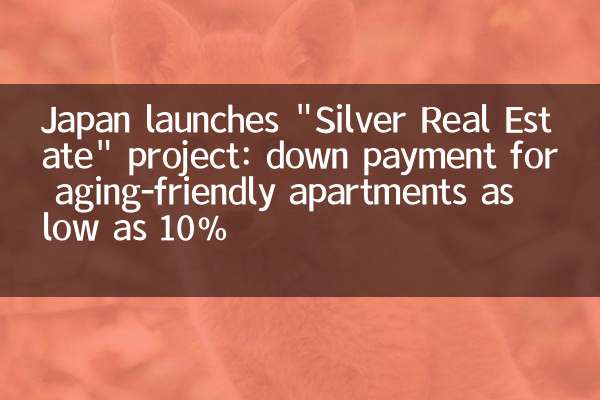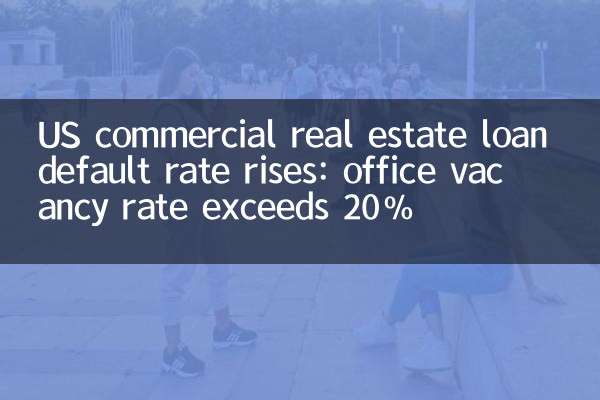Australia relaxes restrictions on foreign home purchases: stamp duty reduction for overseas buyers
Recently, the Australian government announced a major policy adjustment aimed at attracting more overseas investors to the Australian real estate market. Under the new policy, overseas buyers will enjoy a 50% discount on stamp duty when purchasing property in Australia. This move is expected to significantly enhance the international appeal of the Australian property market and further stimulate economic growth.
Policy background and purpose

The Australian government said the policy adjustment is to cope with the sluggish state of the domestic real estate market in recent years and to attract more overseas capital inflows. In recent years, the Australian real estate market has been affected by multiple factors such as the epidemic and rising interest rates, and transaction volume has declined. The government hopes to reduce the cost of buying a house for overseas buyers by reducing stamp duty, thereby boosting market vitality.
Policy specific content
Under the new policy, stamp duty will be 50% off when overseas buyers buy properties in Australia. Here are the specific details of the policy:
| project | Before adjustment | After adjustment |
|---|---|---|
| Stamp duty rate for overseas buyers | 7%-12% | 3.5%-6% |
| Applicable property types | Residential and commercial real estate | Residential and commercial real estate |
| Policy validity period | not applicable | October 1, 2023-December 31, 2024 |
Market response and expected impact
After the policy was announced, the Australian real estate market quickly sparked heated discussion. Here are the main points of each party:
1.Real estate developers: Most developers welcomed it, believing that this will significantly increase the willingness of overseas buyers to buy houses, especially investors from Asian countries such as China and Singapore.
2.Local residents: Some local residents are concerned that policies may lead to rising housing prices and exacerbate housing affordability issues. However, the government stressed that this policy is mainly aimed at the high-end market and has limited impact on ordinary residential properties.
3.economist: Economists generally believe that policies will stimulate the real estate market in the short term, but the long-term effect still needs to be observed. The following is a comparison of relevant data in the past 10 days:
| index | Before the policy is announced | After the policy is announced |
|---|---|---|
| Overseas buyer consultation volume | Average 100 times per day | Average of 500 times per day |
| High-end residential transaction volume | 20 sets per week | 50 sets per week |
| House Price Index (Monthly) | -0.5% | +1.2% |
International buyers focus on regions
According to data from the Australian Real Estate Association, the areas that overseas buyers are most concerned about are mainly concentrated in the following cities:
| City | Real estate type | Average price (AUD) |
|---|---|---|
| Sydney | High-end apartment | 2,000,000 |
| Melbourne | villa | 1,500,000 |
| Gold Coast | Vacation property | 1,200,000 |
Future Outlook
The Australian government said that this policy is a phased measure and will be adjusted in the future based on market response. If the effect is significant, the policy period may be further extended or the scope of discounts may be expanded. At the same time, the government will strengthen supervision of the real estate market to ensure that policy dividends benefit the economy rather than trigger speculation.
Overall, Australia's policy of relaxing restrictions on foreign-funded housing purchases will inject strong impetus into the real estate market in the short term, but it also needs to balance the interests of local residents. Overseas investors should pay close attention to policy trends and seize investment opportunities.

check the details

check the details